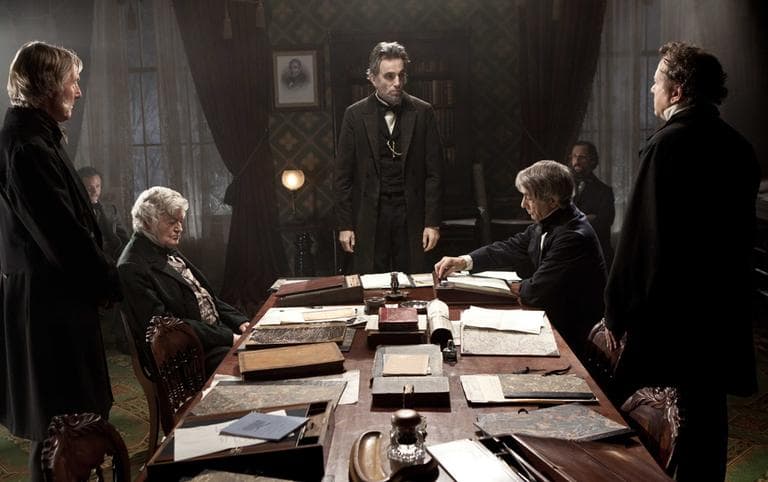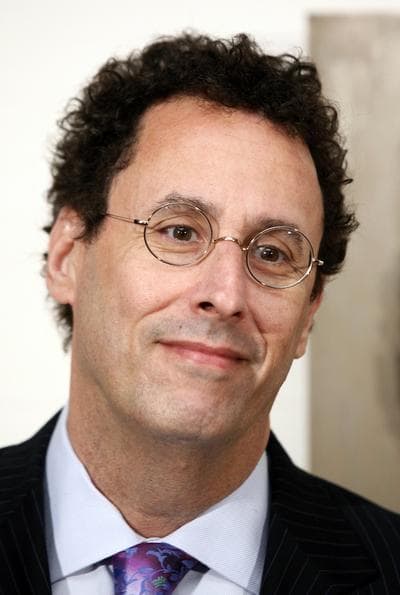Advertisement
Spielberg's 'Lincoln' — VERY Tony Kushner

That Steven Spielberg’s “Lincoln” more than lives up to the hype came as a real surprise to me, given my longstanding love-hate relationship with the director. I started out loving the spirit of adventure in the early films — “Raiders of the Lost Ark,” “Close Encounters of the Third Kind,” even the TV work on “Duel” and “Columbo.”
And then he got serious. “The Color Purple” was his first attempt to be considered a smart guy but it was too Alice Walker meets Walt Disney. “Schindler’s List,” of course, was the Oscar breakthrough and in the minds of most people the one that announced the arrival of a Great Filmmaker.
But not to this mind. Compared with the intelligence of Roman Polanski’s “The Pianist” or “Sophie’s Choice,” it seemed flat and pretentious. And even, again, Disney-fied at the end when Spielberg went for pop transcendence. His lame attempt to finish Stanley Kubrick’s vision for Brian Aldiss’s “A.I.” only confirmed why Kubrick was an artist and Spielberg was merely a filmmaker.

Then Spielberg hooked up with a great artist in another idiom, Tony (“Angels in America”) Kushner. I never would have guessed that
“Munich,” the story of Israeli intelligence’s international quest for vengeance after the Olympics massacre, was made by Spielberg if I hadn’t known. Suddenly the black and white world of “Schindler” and “Saving Private Ryan” was replaced with shades of gray, moral certitude by moral ambiguity. It was hardly anti-Israel as some critics charged, but it warned of what happens when an eye for an eye becomes the ethical endgame.
Still, it wasn’t a great movie. I never quite believed that Spielberg was committed to the material, though that might have been my prejudice. “Lincoln” makes me wonder if “Munich” was a better film than I gave it credit for at the time.
Because “Lincoln” is a great film for all kinds of reasons, beginning with Kushner’s smart, funny screenplay and including another jaw-dropping performance by Daniel Day-Lewis and any number of other soulful performances, none more so than that by Tommy Lee Jones. Spielberg has become a superb actors’ director — he was always a good one.
Advertisement
It’s the acting, the period set design and quasi-sepia photography here and there that most people will take away from the film, but as a longstanding Kushner fan I agree with The Boston Globe’s Ty Burr’s excellent review that it’s Kushner’s lefty screenplay that lifts the film above Hollywood iconography. With the film’s focus on the Thirteenth Amendment — which really ended slavery, not the Emancipation Proclamation — I can’t imagine that contemporary politics were far from Kushner’s mind, particularly Barack Obama’s health-care jousting with Congress.
It's hard to imagine that contemporary politics were far from Kushner’s mind, particularly Barack Obama’s health-care jousting with Congress.
Not that Lincoln is an unblemished hero. He’s not above LBJ style armtwisting and downright impeachable bribery though he leaves the dirty work to others. But he knows when to compromise and when not to. He listens to his good angels and bad angels and knows whom to listen to when.
I picture Spielberg in a similar position, sitting in his director’s chair while Kushner whispers in one ear, “Sophistication,” and former Boston Pops conductor John Williams whispers, “Sentimentality” in the other. Not that Williams has his ear to that extent, but he’s become somewhat symbolic of Spielberg’s trajectory, writing exciting soundtracks for his adventure movies and glop for his more serious films.
In any event, Spielberg gets the balance right in “Lincoln.” Toward the end of the first half of “Angels in America,” after the angel crashes through the ceiling, Kushner’s character, Prior, declares “VERY Steven Spielberg.” And the movie probably needs some of Spielberg’s celebratory camerawork and Williams’s orchestral swells underlining Lincoln’s great victory toward the end of the film.
It’s a victory for Spielberg, too, who listens to his better angels, particularly to the fellow who knows all about angels in America.
Here's a trailer for the film:
For More On "Lincoln":
This program aired on November 14, 2012. The audio for this program is not available.

